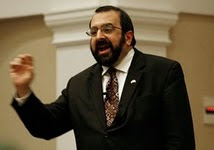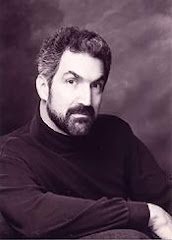In my last installment in the Worrell Report, I focused on the apparently unconstitutional nature of the role of AFIC’s CEO, Mr Amjad Ali Mehboob. I also queried whether he should be held responsible for the irregularities in AFIC’s financial and other procedures.
As I read further into the report and the summary co-authored by 2 current AFIC executive members, I noticed some of the extreme difficulties which Mr Mehboob and other employees of AFIC face.
AFIC isn’t the nicest of work places. The organisation has no written or set policies or procedures for recruitment or training of employees, virtually all of whom operate without job descriptions or set delegations.
It gets worse than that. There are also no policies for staff leave, including annual and long service leave. AFIC’s failure to properly document its workplace procedures is a particularly acute problem given the introduction of the Work Choices legislation.
Imagine working in an environment where such policies are not documented. For such an environment to exist in an organization which claims to represent Islam and Muslims in Australia is especially embarrassing.
The Prophet Muhammad (peace & blessings of God be upon him) is reported to have said: “Pay the worker before his sweat dries”. I am no scholar of religious law, but my reading of this particular saying leads me to believe that it is imperative for a Muslim institution to ensure its employees’ rights under law are readily met. How this can be done without properly documented procedures beats me.
The absence of documented employment procedures is a matter for which the executive members of AFIC are primarily responsible. It is not the responsibility of staff to find themselves something to do. Rather, it is the responsibility of those in management roles to provide staff with an environment where their roles are properly documented, set out and demarcated.
AFIC has not had duds or dummies for executive members. It has had senior people, many of them professionals, business people and academics. These are people accustomed to dealing with workplace situations. They know the law. And if they don’t, they certainly know where to get the advice from.
If the Worrell Report shows anything, it is the chronic mismanagement of Muslim institutions in Australia. What is happening in AFIC is reflective of what is happening at State and Territory level and in local mosque societies. Here, we will find professional people managing institutions in a manner they would never manage their own private, family or business affairs.
I’d like to think that AFIC executive members would realize they have fiduciary duties to the organization. I’d also like to think they would realize that the poor environment within which their employees work is not conducive to efficiency and productivity.
Further, an environment where workers feel vulnerable and where their rights and duties are undefined is one where corruption and graft could easily take place unnoticed. Where such instances occur, naturally the employees themselves are primarily responsible. However, part of the responsibility would also have to be shared by the executive members who failed to ensure proper workplace procedures were in place.
AFIC has been in existence for over a quarter of a century. It really is quite scandalous that these pressing employment issues have remained unaddressed for so long. What makes the situation even worse is that existing AFIC employees seem to be over-worked. Clause 182 of the Report recommends that AFIC consider increasing its administrative staff numbers to ensure administrative tasks are dealt with in a timely manner.
And while the executive members continually fail to ensure proper workplace procedures are in place, these same members then feel they should be compensated for time spent doing AFIC business as opposed to working on their professional practices or in their businesses.
It is not uncommon for executive members to seek payment from AFIC to compensate them for personal and/or professional time lost. Meanwhile, AFIC staff work undefined hours performing undefined but necessary tasks in an environment where they are over-worked and operating in procedures which, where documented, are in effect unconstitutional.
This is the peak national Muslim body. It is a matter of embarrassment and shame that a community which can produce CEO’s of some of Australia’s tope companies, partners of major commercial law and accounting firms, deans of university faculties and senior public servants is unable to ensure its own house is properly managed.
© Irfan Yusuf 2006










